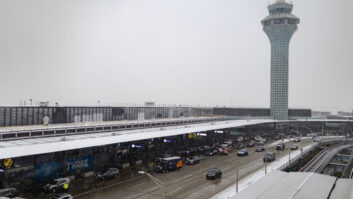Radio One has failed to convince the FCC to let it change the community of license for WWIN(FM) from Glen Burnie, Md., to Arbutus, Md. — even though another station that would have received more interference was willing to go along with the change.
Arbutus is an unincorporated area of 20,000 people with no first local service, but located within an urban area. Radio One had argued that the public interest would be served by a rule waiver.
WWIN is a grandfathered short-spaced FM that markets itself as a Baltimore station. Radio One wants to provide Arbutus with a first local transmission service while using its current transmitter site, arguing that the site is the only one possible. It also asked to double its power to 6 kW.
FCC rules require that any modification to the facilities of a pre-1964 short-spaced station like WWIN must not increase the area and population of interference to co-channel or first-adjacent channel stations. Radio One said the only relevant new interference would be to a station in Pennsylvania owned by Susquehanna, which signed off on the idea.
But the move was opposed by three other licensees in the area: CBS, Howard University and Prettyman Broadcasting. They cited interference not only to the Susquehanna station but, respectively, to second-adjacent WPGC(FM) and WHUR(FM), and co-channel WICL(FM).
Peter Doyle, chief of the Audio Division of the Media Bureau, now has rejected Radio One’s argument of an “overarching” public interest benefit to the move. “Moreover, the commission has a long-standing policy of refusing to base waivers of rules designed to prevent interference on non-technical considerations such as ownership or programming. Finally, except in certain narrowly defined, rule-based circumstances, the commission has a long-standing prohibition against negotiated or otherwise consensual interference in the FM broadcast band.”
Expanding on the “negotiated interference” angle, Doyle wrote:
“Although the commission has stated that it is in the public interest to consider allowing negotiated interference agreements among FM licensees, to date it has not lifted this general prohibition, and it is not appropriate for us to implement such a policy change in this adjudicatory context.”
He said the ageement of another broadcaster to increased interference “is not decisive, because it is the listeners in the affected area who are the beneficiaries of the commission’s spacing rules and other policies designed to limit interference.”
So, he concluded, this community of license change — from one community in an urbanized area to another within the same urbanized area — “does not constitute sufficient special circumstances to justify waiver of two separate rules that underlie important commission policies regarding FM interference.”
His ruling further explored the question of short spacings, community of license changes and FCC precedents. You can read the full ruling here.







